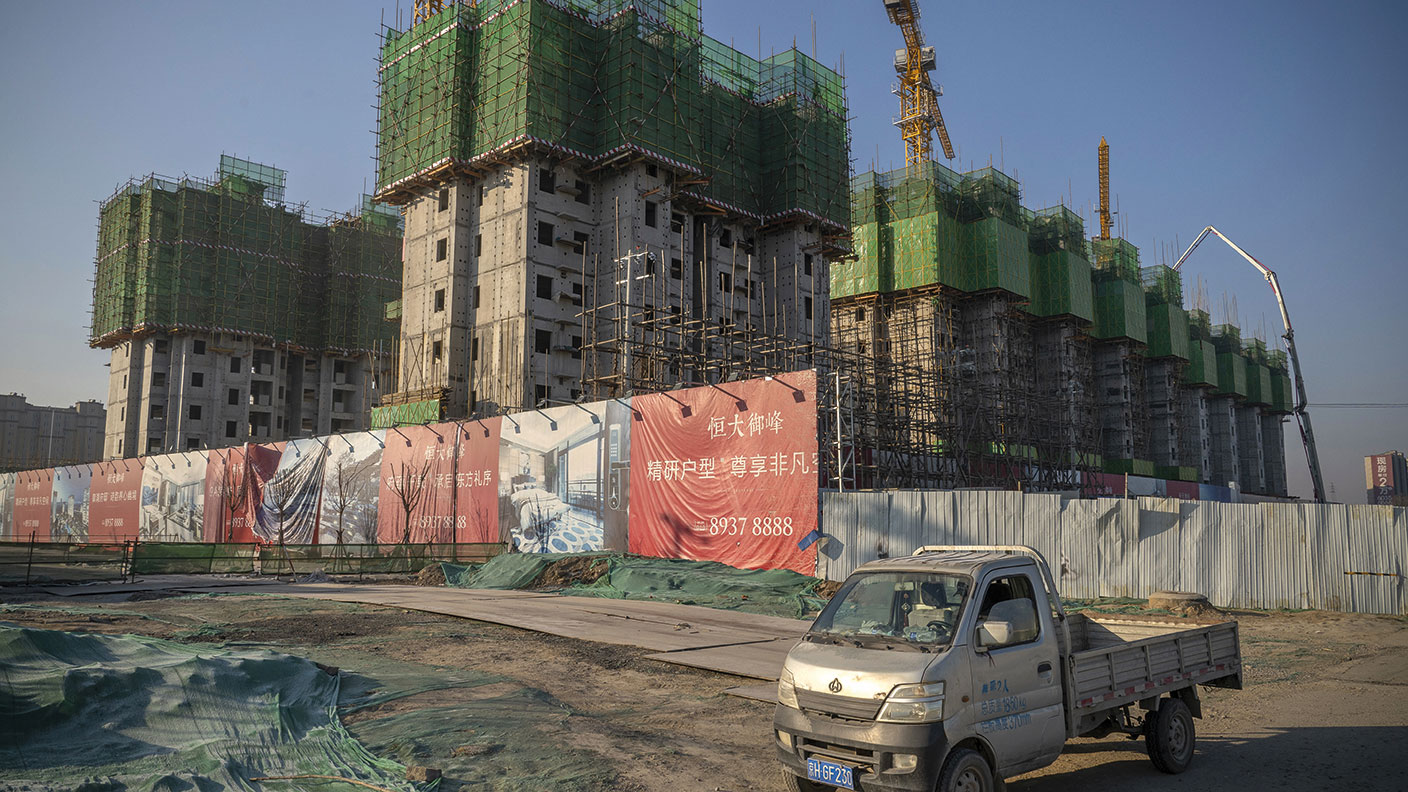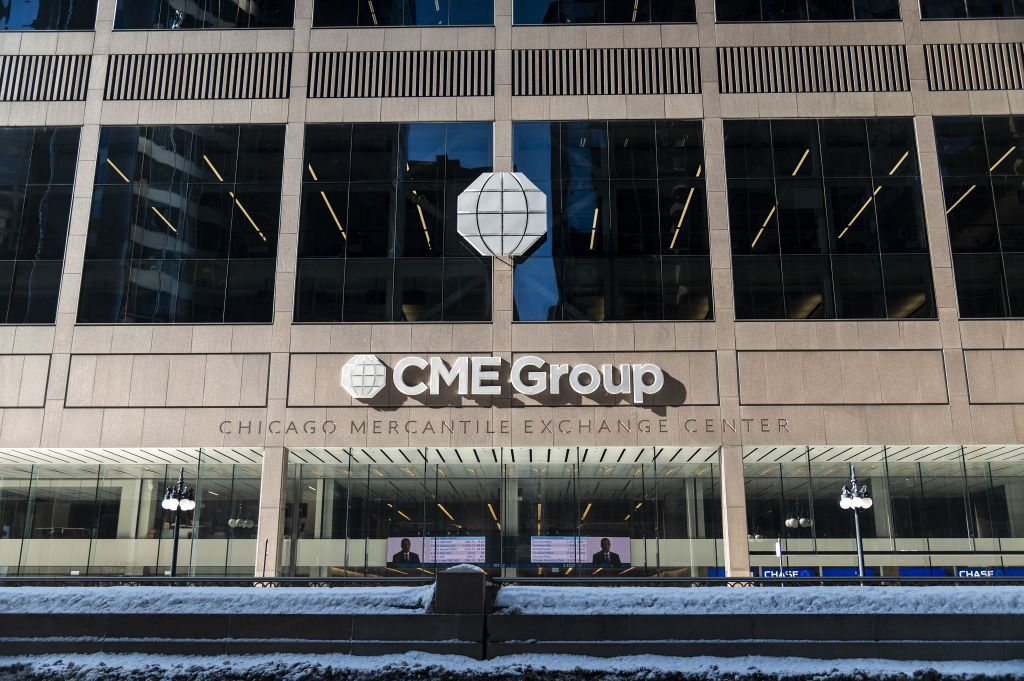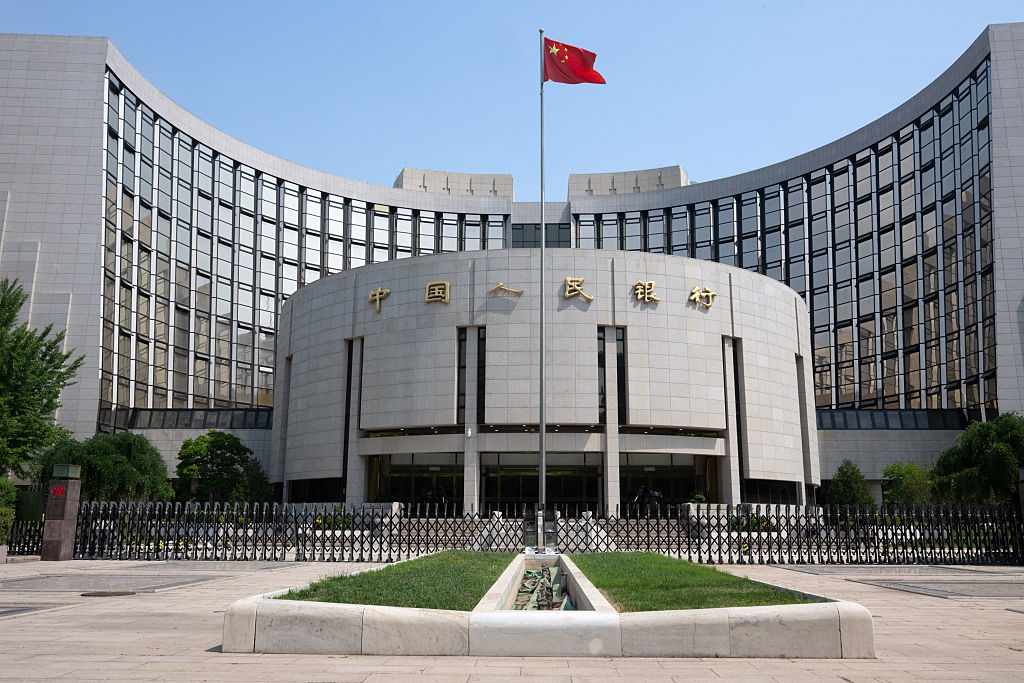China’s largest real estate broker and why you should short its shares
Evergrande isn’t the only Chinese real estate group facing an uncertain future. KE Holdings is too. Matthew Partridge explains how to short it.


Get the latest financial news, insights and expert analysis from our award-winning MoneyWeek team, to help you understand what really matters when it comes to your finances.
You are now subscribed
Your newsletter sign-up was successful
Want to add more newsletters?
One key structural feature of the Chinese economy over the past 15 years has been the booming property market. Thanks to a combination of rapid economic growth, loose monetary policy and Beijing’s decision to put housebuilding and construction at the forefront of a series of fiscal stimulus packages, the Chinese real estate sector is the largest in the world. Indeed, China’s property market is now worth twice as much as the US property market, even though the US economy is still 50% larger in dollar terms (and only slightly smaller when differences in purchasing power are accounted for). However, this boom seems about to come to a messy end.
Beijing has slammed on the brakes, restricting access to credit and tightening regulations, in a (belated) attempt to deflate the bubble. In the past, attempts to rein in the sector have ended without much impact, partly because the Chinese government feared that a slowdown in the sector would have too much of an impact on growth. However, the current crackdown seems more serious. Not only has the number of new building projects collapsed, but many Chinese property groups are now in trouble, most notably Evergrande, which technically defaulted last month, and is undergoing an official “restructuring”.
China’s property woes
While not quite on the scale of Evergrande, another company which stands to lose from the fallout is KE Holdings (NYSE: BEKE). It claims to be China’s largest real estate broker in terms of transaction numbers – according to its figures, its sales more than doubled between 2017 and 2020. As a result, its share price also doubled only a few months after it listed in the US in August 2020. However, its share price has since fallen by more than two-thirds, as doubts about Chinese property continue to grow. To add insult to injury, Muddy Waters Capital, run by noted short-seller Carson Block, published a report in December querying some of the figures KE has produced regarding sales and transactions.
Try 6 free issues of MoneyWeek today
Get unparalleled financial insight, analysis and expert opinion you can profit from.

Sign up to Money Morning
Don't miss the latest investment and personal finances news, market analysis, plus money-saving tips with our free twice-daily newsletter
Don't miss the latest investment and personal finances news, market analysis, plus money-saving tips with our free twice-daily newsletter
Yet even if its figures are accurate, KE Holdings seems overvalued, trading at 35.4 times 2022 earnings. Assuming the Chinese real estate market doesn’t collapse (a big assumption, as things stand), KE’s growth is set to fall to a more modest 10% a year. Meanwhile it faces intense competition from other national brands, as well as local brokers, who are willing to charge a fraction of its 2% fee on every sale. Another concern is the fact that it is struggling to use its capital productively, producing a measly return on capital employed (ROCE) of around 2% a year. Unless it is able to increase this, its growth will effectively be destroying value.
Overall, with the share price still drifting lower I’d suggest shorting KE Holdings at the current price of $21.74 at £90 per $1. I’d cover your position if it rises above $32.74. This gives you a possible downside of ��990.
Trading techniques: the skyscraper index
Last October, as part of a crackdown on “speculative” real estate projects, the Chinese authorities ordered that local cities stop building “super high-rise buildings”. The ban was prompted by a number of cases where buildings had experienced problems (most notably in Shenzen, where people had to be evacuated from one skyscraper). Yet it’s somewhat ironic because tall buildings are also typically associated with stockmarket bubbles.
While there are various versions of the “skyscraper index”, the basic logic is that skyscrapers tend to be poor investments, producing low returns. So for skyscrapers to be built, their backers need to be driven more by vanity or irrational optimism, rather than commercial logic; there needs to be a dearth of more profitable and practical investment opportunities to exploit; and, since they are usually funded with borrowed money, credit also has to be widely and easily available (a key factor associated with bubbles).
There is anecdotal evidence to support the idea that the building of record-breaking towers coincides with market crashes. Construction of the Empire State Building began a few months after the Wall Street Crash, while the original World Trade Centre in New York and the Sears Tower in Chicago were both started in the early 1970s, just before another bear market. Dubai’s Burj Khalifa (currently the largest building in the world) was still being built during the global financial crisis.
However, a study in 2015 by Bruce Mizrach, Jason Barr, and Kusum Mundra of Rutgers University, comparing construction dates for the world’s highest buildings with changes in economic output, argued that such buildings tend to follow – rather than predict – the economic cycle.
How my tips have fared
Despite the recent market turbulence, my long tips haven’t done as badly as you might expect, with three rising and three falling. US homebuilder DR Horton fell below the stop-loss level of $88 (which means you would have automatically closed the position). Construction firm Morgan Sindall fell from 2,362p to 2,150p, while wealth manager Rathbone Group dropped from 2,060p to 1,866p. However, supermarket J Sainsbury went up from 279p to 285p, mobile phone group Airtel Africa rose from 135p to 149p, and bus company National Express rose from 255p to 264p. Counting DR Horton, my long tips are making a profit of £3,210, down from £3,823.
The overall performance of my long tips may have been disappointing, but the silver lining to the market turmoil is that my short tips moved in my favour, especially as technology and so-called meme stocks, have done particularly badly over the past fortnight. Online marketing group HubSpot fell from $530 to $455, US cinema chain AMC slid from $22.78 to $16.64, while remote medicine firm Teladoc went down from $79.80 to $73.18. Overall, my shorts are making a profit of £2,597.
Looking over the portfolio, I have five long tips (Morgan Sindall, Rathbone Group, J Sainsbury, Airtel Africa and National Express), plus four short tips (KE Holdings, HubSpot, AMC and Teladoc). While I wouldn’t suggest you close any of the current long positions, I’d raise the stop loss on Morgan Sindall to 1,875p (from 1,850p); on J Sainsbury to 1,550p (from 1,500p); on Airtel Africa to 105p (from 95p); and on National Express to 130p (from 123p). I’d also cut the price at which you cover your AMC short to $40 (from $45), and cover Teladoc at $150 (from $210).
Get the latest financial news, insights and expert analysis from our award-winning MoneyWeek team, to help you understand what really matters when it comes to your finances.

-
 8 of the best properties for sale with minstrels’ galleries
8 of the best properties for sale with minstrels’ galleriesThe best properties for sale with minstrels’ galleries – from a 15th-century house in Kent, to a four-storey house in Hampstead, comprising part of a converted, Grade II-listed former library
-
 The rare books which are selling for thousands
The rare books which are selling for thousandsRare books have been given a boost by the film Wuthering Heights. So how much are they really selling for?
-
 Should you sell your Affirm stock?
Should you sell your Affirm stock?Affirm, a buy-now-pay-later lender, is vulnerable to a downturn. Investors are losing their enthusiasm, says Matthew Partridge
-
 Profit from pest control with Rentokil Initial
Profit from pest control with Rentokil InitialRentokil Initial is set for global expansion and offers strong sales growth
-
 In the money: how my trading tips fared in 2025
In the money: how my trading tips fared in 2025The success of the open positions offset losses on closed ones, says Matthew Partridge
-
 Coreweave is on borrowed time
Coreweave is on borrowed timeAI infrastructure firm Coreweave is heading for trouble and is absurdly pricey, says Matthew Partridge
-
 Circle sets a new gold standard for cryptocurrencies
Circle sets a new gold standard for cryptocurrenciesCryptocurrencies have existed in a kind of financial Wild West. No longer – they are entering the mainstream, and US-listed Circle is ideally placed to benefit
-
 Profit from other investors’ trades with CME Group
Profit from other investors’ trades with CME GroupCME Group is one of the world’s largest exchanges, which gives it a significant competitive advantage
-
 Investors need to get ready for an age of uncertainty and upheaval
Investors need to get ready for an age of uncertainty and upheavalTectonic geopolitical and economic shifts are underway. Investors need to consider a range of tools when positioning portfolios to accommodate these changes
-
 How much gold does China have – and how to cash in
How much gold does China have – and how to cash inChina's gold reserves are vastly understated, says Dominic Frisby. So hold gold, overbought or not